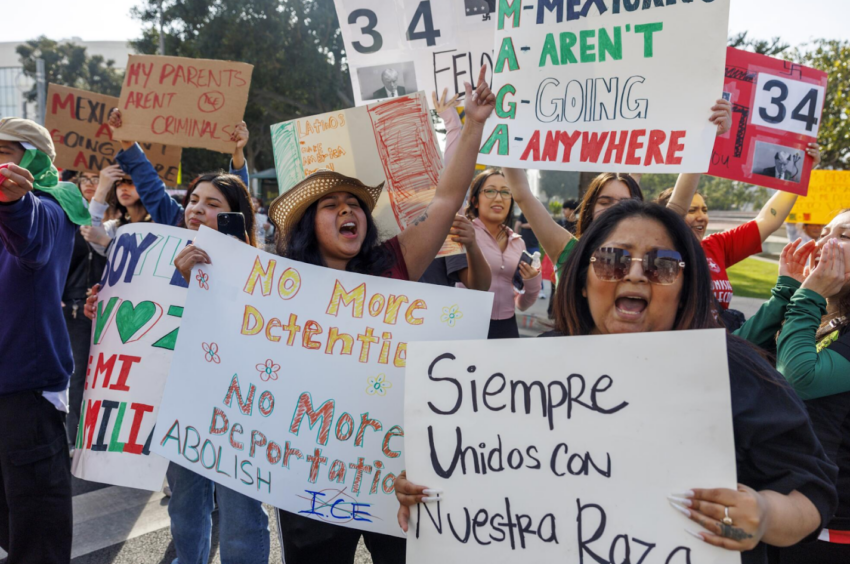By Carolina Alphonso and Vincent Wang, Staff Writers
On January 20th, 2025, President Trump returned to the presidency for his second term. In less than 24 hours, he issued a record number of executive orders, many of which involved the issue of immigration and deportation.
Throughout his campaign, Trump focused heavily on the issue of illegal immigration and deportation. He promised to deport undocumented civilians back to their country of origin. “This has been like his main thing,” senior Maggie Orlofsky says, “ever since he talked about this ‘wall.’ This isn’t new to us, about him wanting to separate Mexico and America.” Now in office, Trump has already put these orders into action. The Immigration Customs and Enforcement Office (ICE) has been tasked with the deportation of millions of illegal immigrants. ICE raids have been happening around the country, taking any people without documentation away from their lives and into black trucks. Junior Nova Alamo had commented that “there are already deportations happening in Puerto Rico which is just mind-boggling to me.”
The raids have been trying to make their way into schools, churches, and even hospitals.
“This honestly shouldn’t be legal.” Senior Jizelle Williams exclaimed frustratedly. “These are places that shouldn’t be where they should be raiding. Like church is for worship and hospitals are literally for those who are injured or sick. They can’t just be taking people away from there.” These areas were considered ‘sensitive’ and would not permit Homeland Security from entry. After Trump took office, this policy was revoked, allowing ICE to raid these places.
The situation has also spread to those migrating with the complete deletion of the CBP. The CBP (Customs and Border Protection) app was created to help people migrate to the country legally. The process takes time, with some waiting since 2018 to get legal documentation. On January 20th, the app was, according to the CBP website, “no longer available, and existing appointments have been canceled.”
Senior Moon Bautista, had spoken with frustration about the shutdown of the app: “They want people to enter the country the ‘legal way,’ but how can people do that if they don’t even have access to resources?” With the app no longer being able to be used, all migrants who had been scheduled for appointments no longer can enter the country with their appointments being canceled. The years of waiting to be able to obtain legal documentation are no longer a possibility for them.
The issue of illegal immigration has long been at the forefront of US politics. Trump threatened to use tariffs and add a trade tax when he started his second term in office since Coulmbia first declined the deportation of illegal immigrants. Tariffs would hurt Columbia as all U.S. exports would have a tax. Some of the goods that could be impacted are coffee and oils. After the pressure of Trump’s threats, the Columbia government agreed on the deportations of Colombian natives as the cost of these tariffs would hurt the economy more. Now let’s look at what the short and long-term effects are. The short-term effect is that the flow of goods moving in and out are not affected because of the agreement. The long-term effect would be the tensions in the relationship between Colombia and the U.S. rising and that could cause problems in the future. Junior Ram Chillakuru states that “hopefully the threat of tariffs on Columbia does not affect us in the long run,” since “it’s better to have peaceful relations throughout countries” rather than having “tensions rise”.
This order has sparked a lot of controversy throughout the nation, with many wondering what exactly he has planned next. It’s safe to say though, that these orders are moving fast and they’re hitting hard.

